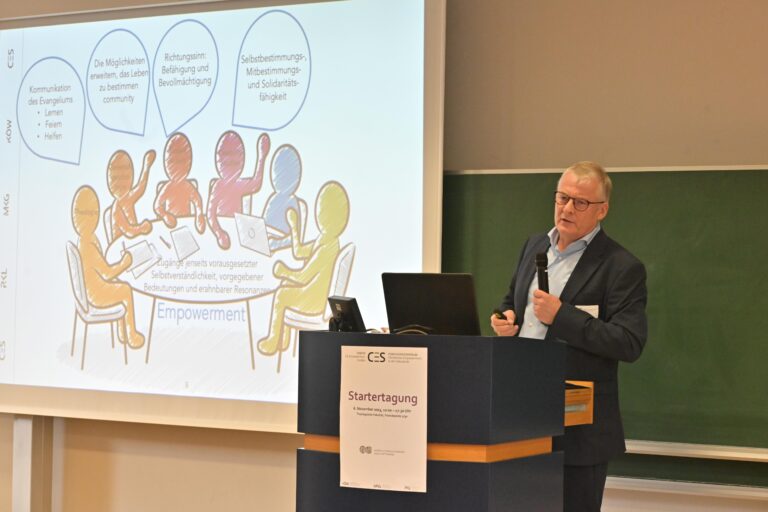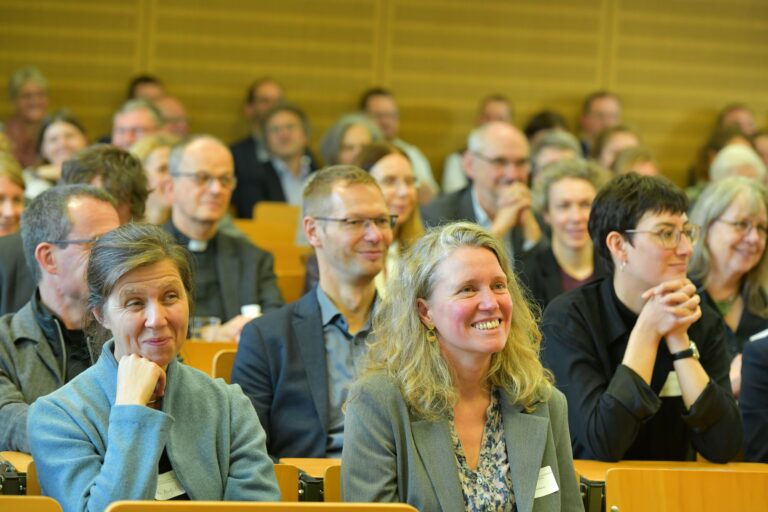

Center for Empowerment Studies
Research Center for Christian Empowerment in Secularity
Research
Christian Empowerment in Secularity
The Center for Empowerment Studies (CES) is a scientific research center at the Theological Faculty of Martin Luther University Halle-Wittenberg.
How can communication of the gospel succeed under the current conditions of secularization? How can people experience the gospel as enabling and empowering for their life formation? The CES researches with different emphases on Christian empowerment in religious education and practical-theological contexts. The CES works in three research units and involves further projects and partners. An interdisciplinary approach to theology, social, and humanities sciences characterizes the research of the CES.


CES Research and Projects
Common Research Colloquium
Christian Empowerment in Secularity
MEHR
weiterResearch unit RKL
Religious Communication and Learning Processes
MEHR
weiterResearch unit MKG
Missional Church and Community Development
MEHR
weiterResearch unit KÖW
Church and Community Theory - Ecumenism and Knowledge Transfer through Global Lutheran Perspectives
MEHR
weiterDFG-Project
Religiosity in East Germany
MEHR
weiterResearch on Christian Empowerment in Secularity
Empowerment aims to provide life assistance that enables individuals to trust in their own abilities and lead their lives independently. This requires specific skills and competencies on one hand, and strength, power, and courage on the other. When addressing empowerment, both the resources of the individual (personal potential) and the available resources (structural potential) need to be considered. Ultimately, the goal is to explore how, from a Christian perspective, possibilities can be expanded so that people can live self-determined lives.
For example, we ask what encourages individuals to trust in their own abilities and lead their lives independently, and how the communication of the Gospel can play a role in this. We want to examine more closely what it means to live, pray, celebrate, bless, and be blessed as a Christian. This interests us especially when supportive factors in culture and society are losing significance, as we are currently seeing in Germany. Therefore, we are particularly interested in new movements and rituals that emerge in the context of secularization.
The CES works in three research units and involves additional projects and partners. An interdisciplinary approach of theology, social sciences, and humanities characterizes the research of the CES.

